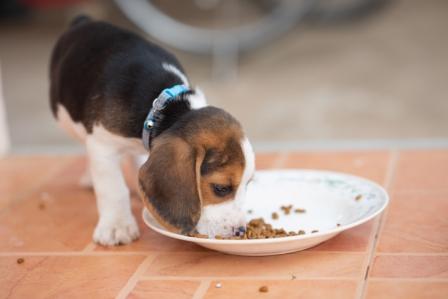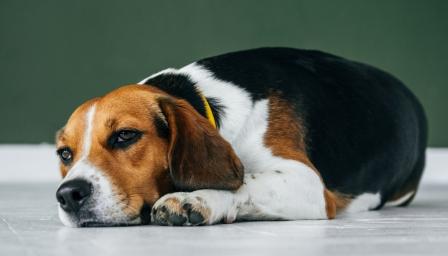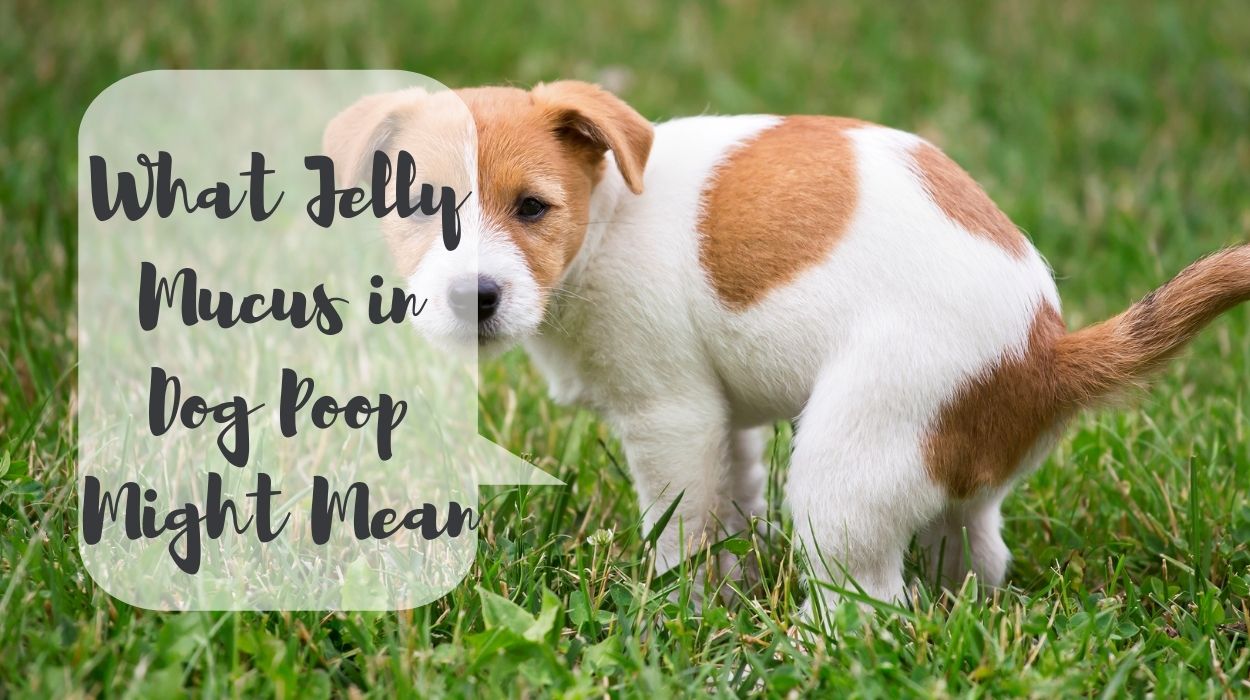Have you ever encountered a slimy substance in your dog’s poop? You may have been grossed out by it but your dog’s poop is actually a great indicator of their health condition. This jelly-like substance in their poop is mucus and it could tell you a lot about what’s going on in their body.
You might also get worried or panic when you see it. It can be surprising even for experienced owners. That’s why it is crucial you become aware of what dog poop means when it undergoes changes. Keep reading to know more.
Why do dogs have jelly-like substances or mucus in their stool?
The intestines or the lower intestinal tract glands of your dog create the jelly-like substance that you see in your dog’s poop. It coats the poop or gathers at the end. This slimy material is responsible for keeping the colon moist and lubricated. It might be scary to look at and may cause you to worry.
Nevertheless, this jelly-like or mucus is very necessary. Otherwise, your dog will struggle to poop. Their natural response would be to strain harder to empty their bowels. And, if they push too hard, they might injure themselves.
The mucus is simply dead cells formed in your dog’s gut that help prevent constipation. So, a small amount indicates good health. It is not a sign of a fatal condition.
Now, this may vary in color and all the different colors point to the things happening in your dog’s system.
You only have to worry when it is present in large quantities. Then, it might be a sign of a serious health issue that is affecting them.
When there is too much mucus, it could mean inflammation in your dog’s colon. This is a condition called Colitis and we will be talking about it in detail, later in this article.
What causes jelly-like mucus?
There is a number of things that cause jelly-like mucus. Let’s take a look at them.
Inflammatory Bowel Disease
Inflammatory Bowel Disease occurs when the large intestine, stomach, or colon is repeatedly attacked by inflammatory cells, causing the walls to become irritated. This irritation leads to the thickening and inflammation of the lining.
Symptoms:
- Diarrhea
- Depression
- Lethargy
- Weight loss
- Abdominal pain
- Constipation
- Bloating
- Vomiting
- Gas
- Bright red substance in stoo
Both Chron’s Disease and ulcerative colitis are forms of IBD.
Diet Change

Changes in the diet can also cause mucus. If you have recently changed the dog food or if someone has treated them to unsuitable food items, your dog’s poop will have mucus.
Your dog is probably used to eating the same type of food every day. So, their digestive system gets used to this regularity. Once you make a sudden change, it can disrupt their digestion. This is why it is extremely important and heavily recommended that you make changes in their diet gradually.
Eating garbage can lead to bacterial infections in their digestive system, which will eventually cause jelly-like substances in their stools. Give them a bland diet like a steamed chicken with white rice to give their system a break.
You may also want to check the contents of their food. Maybe your dog is allergic to something.
Foods like dairy, raw bones, fried, or greasy food will upset their stomach.
Stress

An increase in stress due to changes in the environment like moving to a new home, having a new family member or a new dog, or being away from home can cause this jelly-like material in your dog’s poop.
Dog’s emotional state is closely related to their bowel movements. Dogs that are nervous, anxious or stressed, or have separation anxiety, might have regular issues with their poop. Usually, these dogs will experience diarrhea with jelly mucus and even some blood.
You have to find out the source of their stress and try to resolve it. If it doesn’t get resolved within 24 hours then you should take them to the vet.
Colitis
When there is too much mucus in stool, it can mean that your dog’s colon is excessively inflamed. This condition is called Colitis.
Your dog’s stool travels through the colon last before it exits their body. So, when this gets inflamed, colitis occurs. A large amount of mucus ends up coating your dog’s stool.
There are several reasons why the colon is inflamed:
- Various intestinal parasites
- Bacterial infections
- Ingestion of spoiled food
- IBD
- Allergies
- Stress and trauma
Whatever causes Colitis, such inflammation has a great impact on water absorption in your dog’s body. It will refuse the amount of water that can be absorbed. It stops the storage of feces in their colon which is one of the reasons why they have loose stools. They will feel the need to poop more often.
The blood that accompanies is the result of their strain. If untreated, they can go into hypovolemic shock that causes agitation and confusion in dogs. They will become weak and have difficulties standing.
Parasites
Parasites like whipworms, tapeworms, and, giardia exist in the intestine and colon that cause mucus in your dog’s stool. They also cause extreme irritation. These pathogenic worms can be ingested through food, water, and soil.
Usually, a fecal exam will tell you what type of parasite it is and a dewormer will solve the problem for you.
Irritable Bowel Syndrome
Not to be confused with IBD, Irritable Bowel Syndrome is usually caused by stress. This is where the muscles in your dog’s intestine may not function properly. They may experience intermittent diarrhea or constipation. However, this usually comes and goes within a few days.
Both IBD and IBS may have some common symptoms but the former is a digestive disease while the latter is a functional syndrome. Meaning, IBD will show when tested while IBS will not.
SIBO
Small intestinal bacterial overgrowth is a disease your dog might develop when they are unable to absorb any raw type of food. The bacteria that normally live in the intestine, eat the undigested food. Then, the bacteria uses this as its fuel and overpopulates. Dogs with EPI (exocrine pancreatic insufficiency) experience this more often.
Symptoms:
- yellow mucus
- loose or soft stool
- coating of mucus on the stool
- gas
- chronic diarrhea
- crankiness and lethargy
When does it become a problem?
A little amount of mucus in a dog’s stool is nothing you should be worried about. Some of it is used to help the smooth movement of the waste through the bowels. However, the following scenarios are when you need to worry or take them to the vet:
- When the stool or jelly-like mucus is accompanied by blood. This means there is something more serious affecting your pet.
- When there is a large amount of it.
- Any regular change in the consistency or color, get them checked with the vet.
- When there is vomiting, diarrhea, lethargy, and loss of appetite.
- If part of the poop is changing-if your dog has really soft stool with a lot of mucus.
- If your dog is only emptying mucus and straining overly, there might be something wrong with their GI tract. However, in this case, you need to give time. You have to notice a pattern before visiting the vet.
- When they are not eating or drinking. You should not wait for 24 hours, especially if you notice other symptoms.
What if there is blood in my dog’s mucus?
The existence of blood in the jelly-like mucus in your dog’s stool can mean the following things:
Hemorrhagic Gastroenteritis
Also known as AHDS, Hemorrhagic Gastroenteritis is a disease that can vary from light to life-threatening in dogs. There is not much information about what causes this, however, if left untreated, dogs can become extremely ill, very quickly. They might look normal one day but completely change the next.
Symptoms:
- Vomiting
- Bloody diarrhea
- Sudden change in behavior: can become strange or violent
Parvovirus
Parvovirus is a contagious disease that attacks the gastrointestinal tract lining. Some symptoms are diarrhea accompanied by blood and jelly-like mucus, lethargy, severe vomiting, loss of appetite, and dehydration to a fatal state.
Crohn’s Disease
A form of IBD, this can affect both dogs and humans. You will notice loose stools with jelly-like mucus coupled with blood and your dog may have the urge to poop more frequently. If the condition worsens, they might become picky while eating. They might lose weight due to a loss of appetite.
Treatments
These are the two possible things you can do at home:
Diet:
Provide them with short-term bland food that is easily digestible. White rice, boiled white meat chicken, with no skin or bones, and canned pumpkin is something you can make at home easily to feed your dog.
Probiotics and prebiotics:

This supplement may help with generating a healthy intestinal tract and hinder inflammations and infections.
Conclusion
You may feel first-hand embarrassment when you have to pick your dog’s poop, especially when it’s coated with mucus. If this music is in a small amount, it is normal. And, if the blood that comes with it is minimal, then it could just be the result of strain.
On the other hand, when the mucus is excessive and the blood is fresh, then it could be anything from a change in diet or stress, to both acute or chronic diseases. In this case, you should consult a vet.
Therefore, it is best if you take up the habit of checking their poop regularly to ensure their well-being.
Comment below to let us know what you experienced with your dogs.

Dr. Aram Baker has been with Santa Clarita Animal Hospital since 1995 and his special interests include behaviour medicine and dermatology. He graduated from the Cleveland Humanities Magnet Program in Reseda, CA and attended California State University at Northridge where he received a Bachelor’s degree in biology. He went on to pursue his Doctorate in Veterinary Medicine at the University of California at Davis. He also spent time in the zoological medicine department at U.C. Davis during his Junior and Senior years. He is dedicated to caring for all pets big or small, young or old with compassion, patience, kindness, and love.
